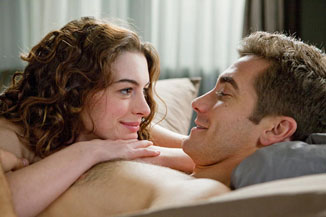|
|
Book vs. Movie: Love and Other DrugsBy Russ BickerstaffDecember 3, 2010
The books merits burn-out pretty quickly. Shoddy overall composition keeps the book as a whole from being very satisfying. The Viagra portion of the book doesn’t really arrive until the very end, by which time Reidy has evidently run out of steam. The news that Reidy has, in fact, become one of Pfizer’s leading sales reps after he’d decided to quit the job altogether is delivered with no particular sense of significance. Reidy may as well have ended the book going on at great detail about drinking a beer or cleaning-up after a dog. There’s no sense of conclusion to Hard Sell. And without an overall plot arc or any cohesive sense of narrative, the story feels a bit lopsided. The lack of polish does help support the overall feeling of unpolished honesty, but it’s an honesty in the service of a remarkably directionless narrative. Without much insight beyond the basic delivery of the information, Hard Sell feels like a strikingly promising first draft. The Movie The film stars Jake Gyllenhaal as Jamie Randall - a variation on the book’s author Jamie Reidy. Though there are parallels between Jamies, the two are distinctly different and thus take the center stage in significantly different stories. As the film opens, we see the first significant difference - Randall is seen working an electronics store in the mid-‘90s. Lacking the military background of Reidy, Randall is seen here as a born salesman who is working way below his potential in a cheap electronics store. Sure, he makes commission, but he’s clearly a brilliant salesman. His one big limitation is his lack of motivation to succeed in anything other than charming women, which he does exceedingly well.
[ View other columns by Russ Bickerstaff ]
[ View other Book vs. Movie columns ]
[ Email this column ]
|

|
|
|

|
Saturday, April 27, 2024
© 2024 Box Office Prophets, a division of One Of Us, Inc.


